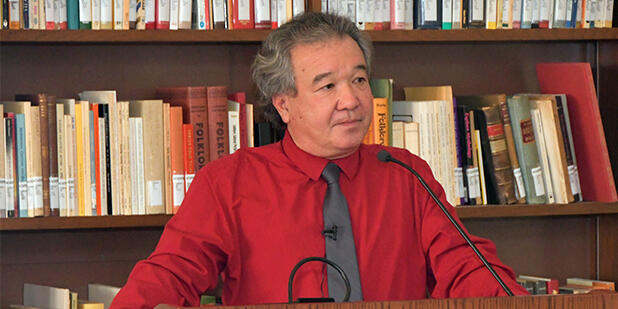Dr. Pedro Loureiro provided an overview on his digital collection of primary sources highlighting the significant role played by Shanghai in support of the US Navy’s Intelligence process in pre-WWII Asia. Naval Intelligence assessments of the economic, military, and political situations in East Asia were drawn heavily from operations and assets based in Shanghai. Loureiro will discuss some of these—Navy Chinese language officers, Naval Attaches, U.S. Marines, the Asiatic Fleet, and the Yangtze River Patrol. In addition to the digital collection, the Pedro Loureiro papers were recently processed by USC Archives Specialist Sarah Cassone and a complete finding aid can be found here: https://archives.usc.edu/repositories/6/resources/2786 as well as on the Online Archive of California (OAC).
Pedro Loureiro is a military historian with graduate degrees from USC and San Diego State University. He has conducted research and written on the Japanese-American community in prewar Southern California, U.S. Naval Intelligence Operations in Asia, and the U.S. Navy’s Chinese and Japanese language programs. Loureiro was curator of the Pacific Basin Institute at Pomona College and then became senior archivist at the Defense Imagery Management Operations Center for the Department of Defense. He is currently the Command Historian and Archivist at Naval Special Warfare Command in Coronado.
This is the first in a lecture series titled Los Angeles and Shanghai: The USC Nexus, coorganized by the USC East Asian Library and USC US-China Institute. The series is intended to showcase USC archival collections related to Shanghai and Shanghainese diaspora.
Click here for the event listing.
This is a part of a lecture series titled Los Angeles and Shanghai: The USC Nexus, co-organized by the USC East Asian Library and USC US-China Institute. The series is intended to showcase USC archival collections related to Shanghai and Shanghainese diaspora. All are welcome. Light refreshments will be provided.
- Michael Dunne on General Motors In China, March 27, 2019
- Eileen Chang’s Sea Burial And Special Collection At USC East Asian Library, January 17, 2019




